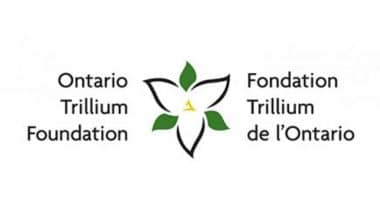Psychology is one of the most important professions in our world today; To get the most of it, you need to advance your career by earning a PsyD (Doctor of Psychology) degree, which is primarily intended for clinical psychologists. Roosevelt University’s PsyD program offers one of the best PsyD programs in the United States.
Almost every state must have a doctorate to work or practice independently in psychology and obtain a legal license as a psychologist. There are several different options for your PhD in Psychology and one of the most popular is the PsyD degree.
In this article, we will discuss the Roosevelt University PsyD program in detail. Costs, Programs, Acceptance Rate, and Scholarships.
Table of contents
- What is a PsyD in Psychology?
- About Roosevelt University
- Why Roosevelt University PsyD program?
- PsyD vs. Ph.D. Programs at Roosevelt University
- Why is the PsyD program at Roosevelt University the best?
- Roosevelt University PsyD Program Acceptance Rate
- Who Should Consider Getting a PsyD at Roosevelt University?
- Admission requirements for a PsyD program at Roosevelt University
- Academic Requirements to complete a PsyD program at Roosevelt University
- Where Can Roosevelt University PsyD Graduates Work?
- How long does it take to complete the PsyD program at Roosevelt University?
- Roosevelt University PsyD sample courses
- Scholarships and Aid for PsyD students at Roosevelt University
- Graduate Assistantship Program
What is a PsyD in Psychology?
A PsyD in Psychology enables you to work at some of the highest levels in the field. The degree was first launched in the 1970s as an alternative for Ph.D. students who were more interested in providing empirically-based services directly to their clients than doing psychological research.
A PsyD or other doctoral degree is almost always required if you want to get your psychology license. Once you receive your degree, you will need to complete a set number of supervised clinical hours.
The final step in acquiring your license is to take and pass the Professional Practice in Psychology (EPPP) exam. Many licensing bodies also require their own country-specific test.
About Roosevelt University
Roosevelt University is an American private university with locations in Chicago, Peoria, Waukegan, and Schaumburg, Illinois. Founded in 1945, the university is named after the late President Franklin Delano Roosevelt and former First Lady Eleanor Roosevelt.
It is the tallest educational building in Chicago, the second tallest educational building in the United States, and the fourth largest academic complex in the world.
Why Roosevelt University PsyD program?
Based on a practitioner-scholar model, the overall goal of the PsyD program at Roosevelt University is to train clinical psychologists who can diagnose and treat mental health problems.
The school expects that.
- Graduates will have the general knowledge and skills of intervention and assessment required for the ethical and competent practice of psychology;
- The pupils address psychological problems and disorders with critical questions. and
- Students maintain productive and professional relationships with others.
The American Psychological Association accredits Roosevelt University’s PsyD program in Psychology.
Their small size (20 new students per year) allows for more personal contact between students and faculty and students at all program levels.
PsyD vs. Ph.D. Programs at Roosevelt University
Of the other graduate students in psychology at major universities, particularly Roosevelt University, the Doctor of Philosophy (Ph.D.) is undoubtedly the most common.
According to the American Psychological Association (APA), Ph.D. Degrees are “intended for students interested in generating new knowledge and gaining teaching experience through scientific research.”
Roosevelt University students in the PsyD program are trained in applying psychological principles to patients. Still, they also receive thorough training in research methods and statistics to produce new knowledge.
Ph.D. Students almost have to write and defend a dissertation to demonstrate their research skills, which is not always true in PsyD programs.
Why is the PsyD program at Roosevelt University the best?
The PsyD program at Roosevelt University uses the American Psychological Association’s professional-wide competency model for healthcare psychology as described in the accreditation standards.
- Research. Students conduct research and scholarships that add to the scientific, psychological, or professional knowledge base. Carry out, critically evaluate and disseminate the research and fellowship results.
- Ethical and Legal Standards. The students know the ethical principles, ethical codes of conduct, laws, guidelines, and guidelines of the APA for the professional practice of the APA. Students always behave ethically in academic, research, clinical, and community settings.
- Individual and cultural diversity. Students reflect on how their identity and background affect their worldview and interactions with others. Students also learn culturally competent and fair services with different individuals and groups.
- Professional values and attitudes. In all research, academic, and clinical roles, students seek to behave in ways that reflect the values and attitudes of the field of psychology.
- Community and interpersonal skills. Students cultivate productive and effective interpersonal relationships with others, including co-workers, co-workers, supervisors, faculty, and those who receive professional services.
You will practice effective interpersonal, verbal, non-verbal, and written communication during your academic and clinical work.
- Rating. Students will develop a thorough understanding of the science of measurement and psychometrics of psychological assessment tools and how psychological assessment tools can be effectively selected and used with those receiving mental health services.
Students interpret and communicate the results of the psychological assessment accurately and sensitively.
- Intervention. Students develop effective and productive relationships with those receiving mental health services. An important focus is the implementation of evidence-based practice or a practice based on the empirical literature, knowledge of clinical theory and models, and the beneficiary’s preferences, needs, living conditions, and cultural backgrounds.
- Monitoring. Students become familiar with supervision models and practices.
- Advice and interprofessional/interdisciplinary skills. Students develop knowledge of other professions’ roles and counseling practices to enable effective interdisciplinary mentoring that benefits recipients of psychological services.
Roosevelt University PsyD Program Acceptance Rate
Roosevelt University PsyD programs tend to have a moderate acceptance rate, meaning they often take in more students, sometimes as high as 100. However, this varies greatly from school to school.
The average acceptance rate is 40% if more places are available per program. However, it is important to note that this does not mean a PsyD degree is easier.
Far fewer schools offer PsyDs; most offer doctoral degrees in psychology. While an individual program may have a better acceptance rate than the PsyD program at Roosevelt University, fewer places are available overall.
Who Should Consider Getting a PsyD at Roosevelt University?
PsyD in Psychology at Roosevelt University is typically aimed at students who have already earned a Master in the same or a related field.
These degrees are designed to train students in various theories, tools, and intervention techniques to treat mental illness, behavioral problems, and emotional distress.
Admission requirements for a PsyD program at Roosevelt University
Most PsyD students at Roosevelt University begin their program with a Masters’s degree in the same or a closely related field. You will likely need a GPA of at least 3.0, although many programs require up to 3.5.
Participation in the PsyD program always requires certain requirements, which vary depending on the school. While getting a degree in another field is possible, you may need to take continuing education courses or pass an exam first to prove that you have the necessary knowledge.
Other requirements include the following;
- Online application
- Registration fee of $40
- Official credentials from all previously attended colleges/universities in the United States. For coursework completed outside of the US, an assessment of the foreign certificates must be submitted.
- Letter of intent setting out your personal and professional goals, why you are interested in this program, and how it will help you achieve your goals
- The final exam results of verbal, quantitative, and analytical writing (GRE; the psychology test is not required).
- Three letters of recommendation from academic and professional references. The professional references should be psychologists, professors, or other related professionals.
- A personal statement. The personal statement should demonstrate a clear, well-articulated understanding of the expectations and responsibilities of clinical psychology education, strong career motivation, and well-formulated career plans.
- A résumé. This is similar to a resume. The resume contains information on relevant educational/academic, professional, research, and clinical experiences.
- Proficiency in English: All international students and individuals who have completed a degree program outside the United States must meet this requirement.
- Selected applicants will be invited to an interview, which is required before admission is granted.
- The application deadline is December 1st
Roosevelt views each applicant individually and seeks diversity regarding ethnic and cultural background, education and life experience, and sexual orientation.
Upon admission to the PsyD program, students meet with the director to develop a program completion plan that covers all of the courses required for the doctoral degree, clinical training experience, comprehensive exam, and doctoral project.
To commence the application, click on the link
https://www.roosevelt.edu/admission/apply
Academic Requirements to complete a PsyD program at Roosevelt University
All students must complete at least 102 semester hours of graduate studies plus three hours of internship credit for 105 semester hours.
In addition to the coursework, students must pass the comprehensive exam, complete three clinical internships (supervised clinical training in the community), complete a doctoral project, and complete a clinical internship before completing their doctorate.
Graduates of our program can apply as licensed clinical psychologists after completing a postdoctoral year with supervised clinical hours, successfully passing the license examination, and fulfilling the relevant requirements at the state level.
Where Can Roosevelt University PsyD Graduates Work?
Graduates of the Roosevelt Doctor of Psychology program work in a variety of settings and roles, including providing psychotherapy and psychological testing services in
- Private practice
- hospitals
- communal psychiatric centers
- Schools and university counseling centers
- and VAs;
Developing and leading programs for mental health and well-being support; Applied research and program evaluation; and teaching, training, and clinical supervision.
How long does it take to complete the PsyD program at Roosevelt University?
For most students, PsyD programs take approximately 3 to 5 years to complete with a greater emphasis on extensive research, Ph.D. Programs typically last between 5 and 8 years.
To obtain your license, many states require that the program you participate in be accredited by the American Psychological Association.
To receive accreditation, a program must consist of at least 3 full-time years of study and a one-year internship so that the path to your PsyD degree is no shorter than 4 years.
Because the PsyD less emphasizes intensive research, your time in your program will likely be less than on a Ph.D.
All courses are offered throughout the week on the Chicago campus. The PsyD program is a full-time program.
READ ALSO: High-Paying Jobs With A Bachelors In Psychology In 2024
Roosevelt University PsyD sample courses
- Community psychology and social justice
- Evidence-based practice
- Multicultural psychology
- Psychopharmacology
- Clinical monitoring and advice
- The psychodynamic theory I and II
- Cognitive behavioral therapies I and II
- Clinical neuropsychology
- Child and youth therapy
Scholarships and Aid for PsyD students at Roosevelt University
Although we follow the practitioner-scholar model, we place a relatively stronger emphasis on science in several ways: Students work with the Faculty of Research, in addition to more formal work on doctoral projects that provides opportunities for presentations and publications from research conferences. And students can develop their scholarship skills through teaching.
Graduate Scholarships
We offer graduate scholarships to all qualified applicants with outstanding academic performance.
Graduate Assistantship Program
Graduate assistants are students appointed to various positions at the university and have different tasks depending on the internship. Graduate assistants are expected to work up to 17 hours per week.
The Graduate Assistantship offers classes for up to 18 semester hours per academic year (maximum 36 hours) including the summer semester, as well as a full-time scholarship ($5,200) for fall and spring semesters.
As a rule, PsyD students in their first year of study have 10 half-time positions available as graduate assistantships, which include half a tuition fee waiver in the fall and spring semesters of the first year of study and a half scholarship ($2,600) in the fall and spring semesters of their first year.
As part of the graduate assistantship part-time positions, students are expected to work 9 hours per week. Students accepted into the PsyD program are automatically considered for these assistant positions.
Work-Study Program Aid
The degree can also be offered to Ph.D. students at Roosevelt University. Students’ eligibility is determined after submitting the free application for a study grant (FAFSA®).
If eligible, students can work part-time in various positions at the university for up to $3,500 per academic year.
Teaching Opportunities
Interested and qualified students can teach introductory psychology courses under the guidance of the Instructor Development Course after completing a Master’s degree.
St. Clair Drake Center Scholarships
Some of our faculties are affiliated with the St. Clair Drake Center, a multidisciplinary university that seeks to support scholarship in African and African-American Studies across disciplines.
Writers’ Recommendations
- Best Psychology Masters Programs California in 2024 | Requirements, Cost, Admission
- IS PSYCHOLOGY B.A. or B.S.?
- High Paying Jobs With A Bachelors In Psychology In 2024





